Baffled
in Boston
was my prize for slogging through two rather awful—one really
rather awful—melodramatic crime/romance novels by Stephen Humphrey
Bogart, scion
of Hollywood's most iconic lovebirds. Besides alliteration, the only
Bogie/Bacall/Baffled
link I found in my several-day read-a-thon was the late Gary Provost,
author of Baffled
and presumed ghost-writer of Play
It
Again
and The
Remake: As Time Goes By,
both titles alluding to an unforgettable scene in Bogie's classic
film, Casablanca.
Provost
was a
novelist, author of true-crime and
how-to-write books,
and
a popular
writing
coach
whom
Stephen Bogart credits with assisting in the memoir Bogart:
In Search of My Father,
published in 1995. It
was
the same year Provost died, and
the same year Play
It Again
came
out—with only Bogart’s
name on the cover.
As
Time Goes By
followed two years later.
My plan was to compare Stephen
Bogart's two novels
with one of Provost's
for clues that Bogart's were ghosted or that maybe he had some less
visible help with his fiction, at least with the first novel. My
conclusion:
There's
no chance Provost or likely any other pro
wrote these novels. They're too green. Dialogue
stiff and overdone, and way too much telling instead of showing.
Frantic sex scenes like those in pulp magazines of the ‘50s. The
kind of callow crap
youngsters of my ilk
were reading and trying to imitate back then.
On the positive side, I
have a hunch Provost
helped plot and shape Play
It Again. The
technique is not new, but
it’s an effective suspense builder—italicized
sections from the serial killer's POV giving us insight "RJ
Brooks," the PI protagonist, doesn't have. The
first murder victim is RJ’s mother, the world-famous movie queen
obviously meant to be Stephen Bogart’s mother, Lauren Bacall. His
father, whom we know was Humphrey Bogart, who died when Stephen was
eight, appears only in memories of characters who see and hear him in
the spitting-image face and voice of his son. Essentially it seems
Stephen Bogart simply changed names and added fictional circumstances
for the novels.
Same
basic cast and same craft flaws for RJ’s later adventure, but with a silly,
meandering plot and a
nauseating romance
between RJ and a TV producer that began in the first novel and
curdles into soap-opera melodrama in The
Remake. I did get
one hearty laugh the author most likely did not anticipate.
The
serial murderer
is one of several characters, including RJ, who vehemently oppose the
tawdry
remaking of Casablanca
(called As Time Goes
By in the novel).
RJ is horrified that
the lead characters will be a brainless musclebound actor noted for
playing a lifeguard on TV, paired with a porn star known mostly for
roles she’s played nude
on her back. RJ spouts
sentimental outrage that the memories of his father and mother, who
starred in the original movie, would be outrageously cheapened by this ripoff.
He’s
a leading suspect in the murders, of course, which means it’s
pretty much up to him to find the real murderer. One of the suspects
puts out a Hollywood-insider magazine, where he has displayed his
murderous rage in print. “‘As
Time Goes By means something, Brooks.’ the
wheelchair-bound editor
tells RJ. ‘Something special, pure, good. Not just to me, but to
all of us, our whole culture. Millions of people, all around the
world. Because it stood for something. It was a rallying cry for the
last great moral battleground—and the good guys won. It was
important, goddammit—maybe one of five or six movies in history
that are really important.’
Okay,
Casablanca
did win three Oscars, including best picture, but...
My out-loud
laugh came before
I reached the editor’s tirade, as I tried
to imagine sultry sassy Bacall doing
Ingrid Bergman’s
peerless scorching of
Bogie’s cynical
heart, quietly wooing
Dooley Wilson to “Play
it, Sam. Play As
Time Goes By.”
Bacall would’ve been
sitting on the piano, her
husky voice caressing
the words, shapely leg
swinging, and
laughing eyes batting
at a Bogie so newly
smitten he’d have pushed a peanut across the floor with his nose to
prove how forgiving he was of
whatever little misunderstanding they’d had...when? Paris? Oh
hahaha...ce
n'est rien !
RJ in both novels can’t
settle on being a tough guy or melting at the thought of Casey
Wingate, who treats him like a stooge except when she suddenly starts
tearing his clothes off and biting his neck. Here he is in the second
novel, giving us his Bogie sneer:
“He liked the fact that all New Yorkers are predators. It was why
he lived here. He’d grown up with the sun-tanned, veggie-loving
mood-ring kissers on the West Coast, and he would just
as soon take the knife in the front,
New York style.” Okay, sounds
like something the old man might have said in a movie. Moments
later, though,
he’s begrudging media crews trying to take advantage of his
bloodline and resemblance to his famous dad:
“Wouldn’t say anything to anybody with a press pass. Except Casey
Wingate, of course. Casey. He
sighed just thinking about her.” What?
Sighing?
A
Bogart male? Oh
dear. Well, we can safely assume if anyone helped Stephen Bogart with
this book it sure as shootin’ wasn’t Norman Mailer.
 |
| Bacall, Bogie, and Baby Bogie |
Now
then I could see Mailer lending a line or two to the first one, Play
It Sam, such
as the following media-baiting scene sans Ms. Wingate:
“With a block to go he’d had enough. He stopped walking and held
up a hand for quiet. ‘Ladies and gentlemen! Please, just a moment,
ladies and gentlemen!’ They didn’t exactly get quiet, but they
got quieter. When R.J. felt that all eyes were on him, he took a
breath and looked squarely into the nearest camera. ‘Blow it out
your asses,’ he said and turned to go.”
That’s
my boy, I can hear Bogie lisp. Precisely
the kind of breezy irreverence leavening Provost’s
ill-fortuned-but-plucky protagonist of Baffled
in Boston,
which opens thusly:
“On
her way out the door my wife, Anne, said something about my choice of
the freelance writing life being irresponsible, selfish, and unmanly.
My unwillingness to wear a necktie was childish. My trips to Las
Vegas were reckless. And most of her orgasms had been faked. Clearly,
she was peeved. I was, she said, an utter failure. Also, she had
fallen in love with another man, so she thought it would be best if
she left me. It would turn out to be the second worst thing that
happened that week.”
Marvelous
beginning. I’ve read it five times already, and am
tempted this instant
to go back and savor it once again. Had
I written it I’d be standing on some street corner in Manhattan
right now belting it out to passersby, and not especially caring
whether or not they dropped any bread in the hat at my feet. Hell,
I’d
sell my pet skink to the Gypsies if they’d align the stars to
enable me to write
a
paragraph
half as good. I’m beginning to think this is how Stephen Humphrey
Bogart tried to learn to write fiction, reading incredibly boffo
paragraphs by Gary Provost over and over, and then trying something
similar. And failing--not
quite
miserably, but
badly enough that his imitations stand out like nipples through a wet
T-shirt.
But
back to Baffled,
a clever,
crafty, murder mystery, swiftly paced with memorable characters,
snappy dialogue, and believable suspense. It’s premised on the
suspicious death of Molly Collins, world-famous Boston advice
columnist, who was a dear friend of Jeff “Scotty” Scotland, the
aforementioned failed freelance writer. Scotty is convinced the
driver who ran Molly down on a Boston street did so deliberately. The
paper she worked for was being sold to a Rupert Murdoch-type,
profit-hungry tycoon with a reputation for buying reputable
newspapers and stripping them of their journalistic scruples. The new owner is running a national contest to pick Molly's successor. Scotty
believes this is somehow connected to her murder.
As
with Stephen Bogart’s two novels, real life has a way of poking its
head through the thin veneer of fiction. Bogart’s celebrated
parents and his own problems handling the celebrity they bequeathed
to him give his writing a cachet and voyeuristic allure of the sort
that can make publishers drool. Baffled
in Boston’s
backstory is less prominent. Its protagonist, of course, is a mirror
of its author. Provost, who
had been dead a year when the book came out. In retrospect it appears
Provost revealed, unwittingly one suspects, some prescience that
brings a sad note to an otherwise sweet romp of a mystery:
“I
was in Dr. Lewis’s office,” Scotty
tells us,
“because I had become terrified about my health. My heart seemed to
beat too often. My fingers trembled over the keyboard on my word
processor. And often I felt as if a load of laundry had been stuffed
into my chest cavity.”
This
brief biographical sketch appears on Provost’s Web page:
Before
the heart attack snatched him from the publishing world, Gary had
sold 22 (fiction and nonfiction) books to major publishing houses.
He’d been dubbed “The Dustin Hoffman of writing” for his
versatility, and he’d sold books in most every genre: How-To texts
for writers. True-Crime. YA novels. Satire. Mystery. Celebrity
Biography. Business. Sports. Romance. Cooking.
Anything writing-related, Gary
could do. He was an editor, book doctor, consultant to business,
ghost-writer. And, out of a field
of 12,000 applicants, he was one of only seven finalists in
the Chicago Sun-Times’ search to replace advice columnist, Ann
Landers.
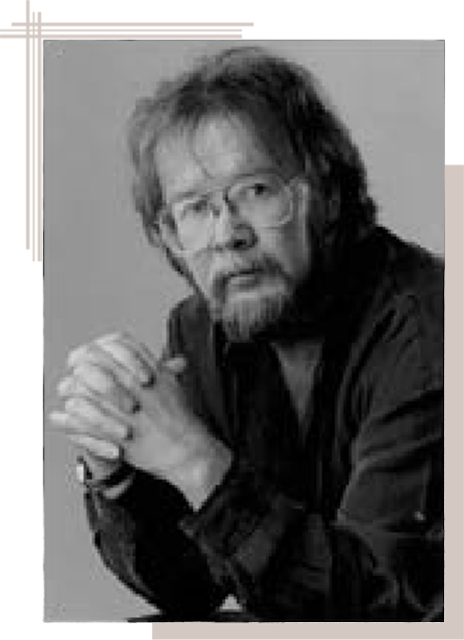 |
| Gary Provost |
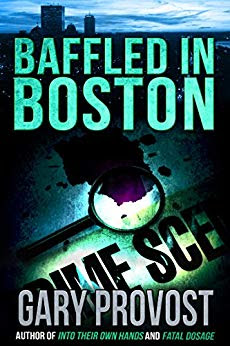
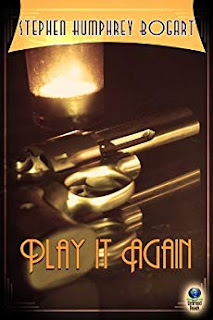
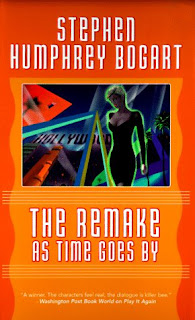
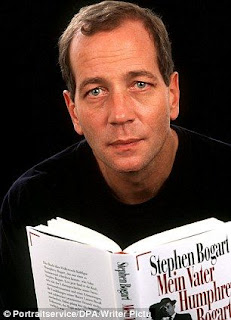
No comments:
Post a Comment